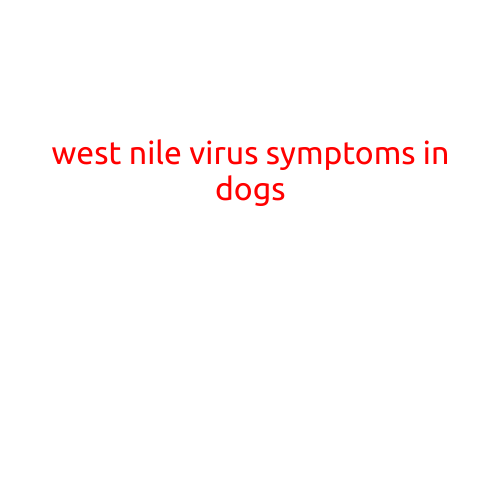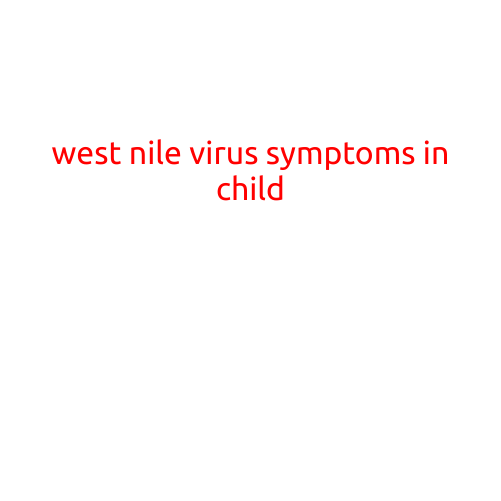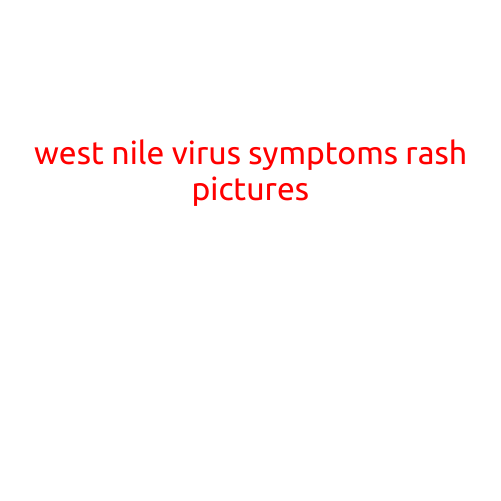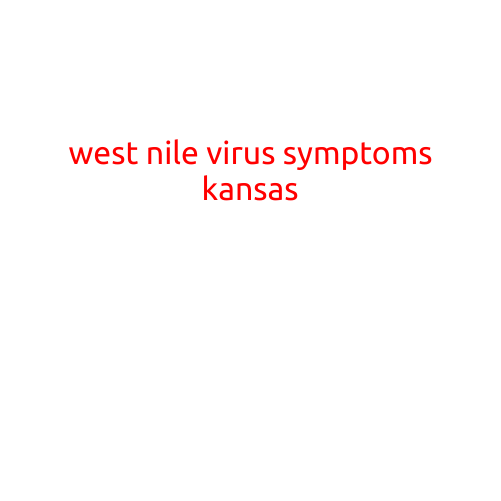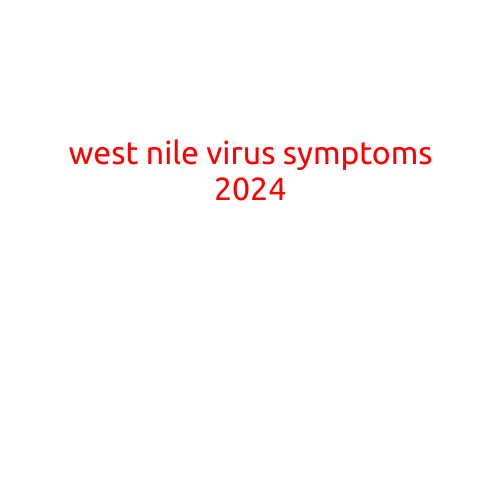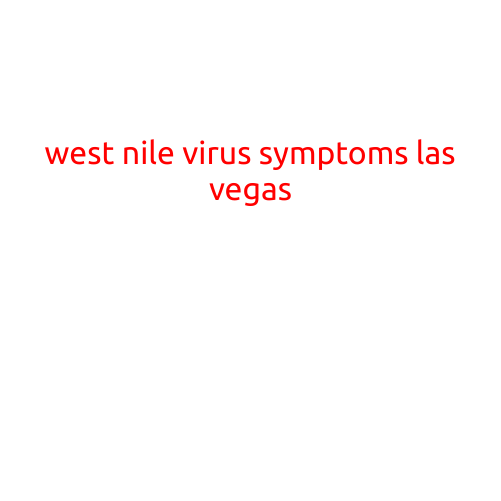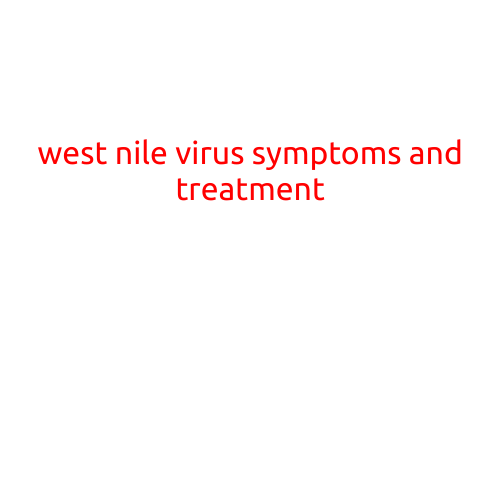
West Nile Virus Symptoms and Treatment
West Nile virus (WNV) is a potentially serious and even life-threatening mosquito-borne disease that has been reported in all 50 states in the United States.Contracted through the bites of infected mosquitoes, WNV can cause a range of symptoms from mild to severe, and in some cases, can lead to long-term neurological damage or death. In this article, we will delve into the symptoms and treatment options for West Nile virus.
Symptoms of West Nile Virus
The symptoms of West Nile virus typically develop within 3 to 14 days after the bite of an infected mosquito and can range from mild to severe. In general, WNV symptoms can be divided into three categories:
- Mild symptoms: In older adults and people with certain medical conditions, WNV can cause mild symptoms such as:
- Fever
- Headache
- Body aches
- Joint pain
- Swollen lymph nodes
- Rash
- More severe symptoms: In some cases, WNV can cause more severe symptoms, including:
- Severe headache
- High fever
- Confusion
- Seizures
- Weakness or paralysis
- Inability to move
- Neurological symptoms: In rare cases, WNV can cause neurological symptoms such as:
- Encephalitis (inflammation of the brain)
- Meningitis (inflammation of the lining around the brain and spinal cord)
- Seizures
- Stroke
- Coma
Treatment for West Nile Virus
There is no specific treatment for West Nile virus, but symptoms can be managed with supportive care. This may include:
- Rest: Getting plenty of rest to help your body recover.
- Pain relief: Over-the-counter pain medications such as acetaminophen or ibuprofen to help manage fever and headaches.
- Fluids: Drinking plenty of fluids to stay hydrated.
- Antiviral medications: In some cases, antiviral medications such as ribavirin may be prescribed to help reduce the severity of symptoms.
- Neurological support: If neurological symptoms develop, early treatment may include hospitalization, intravenous fluids, and respiratory support.
Prevention is Key
The best way to prevent West Nile virus is to take steps to avoid mosquito bites. Some ways to do this include:
- Wearing protective clothing: Wearing long-sleeved shirts, long pants, and socks when outdoors.
- Using insect repellent: Using insect repellents containing DEET, picaridin, or oil of lemon eucalyptus to protect skin and clothing.
- Eliminating standing water: Eliminating standing water around your home to reduce the number of mosquitoes that can breed.
- Using air conditioning: Using air conditioning to reduce the number of mosquitoes indoors.
- Conducting mosquito control measures: Conducting mosquito control measures such as fogging and spraying in areas where mosquito-borne diseases are prevalent.
Conclusion
West Nile virus is a serious and potentially life-threatening disease that can cause a range of symptoms from mild to severe. While there is no specific treatment for WNV, managing symptoms with supportive care and preventing mosquito bites are key to reducing the risk of infection. By taking steps to prevent mosquito bites and seeking medical attention if symptoms develop, you can help protect yourself and your loved ones from this serious disease.
